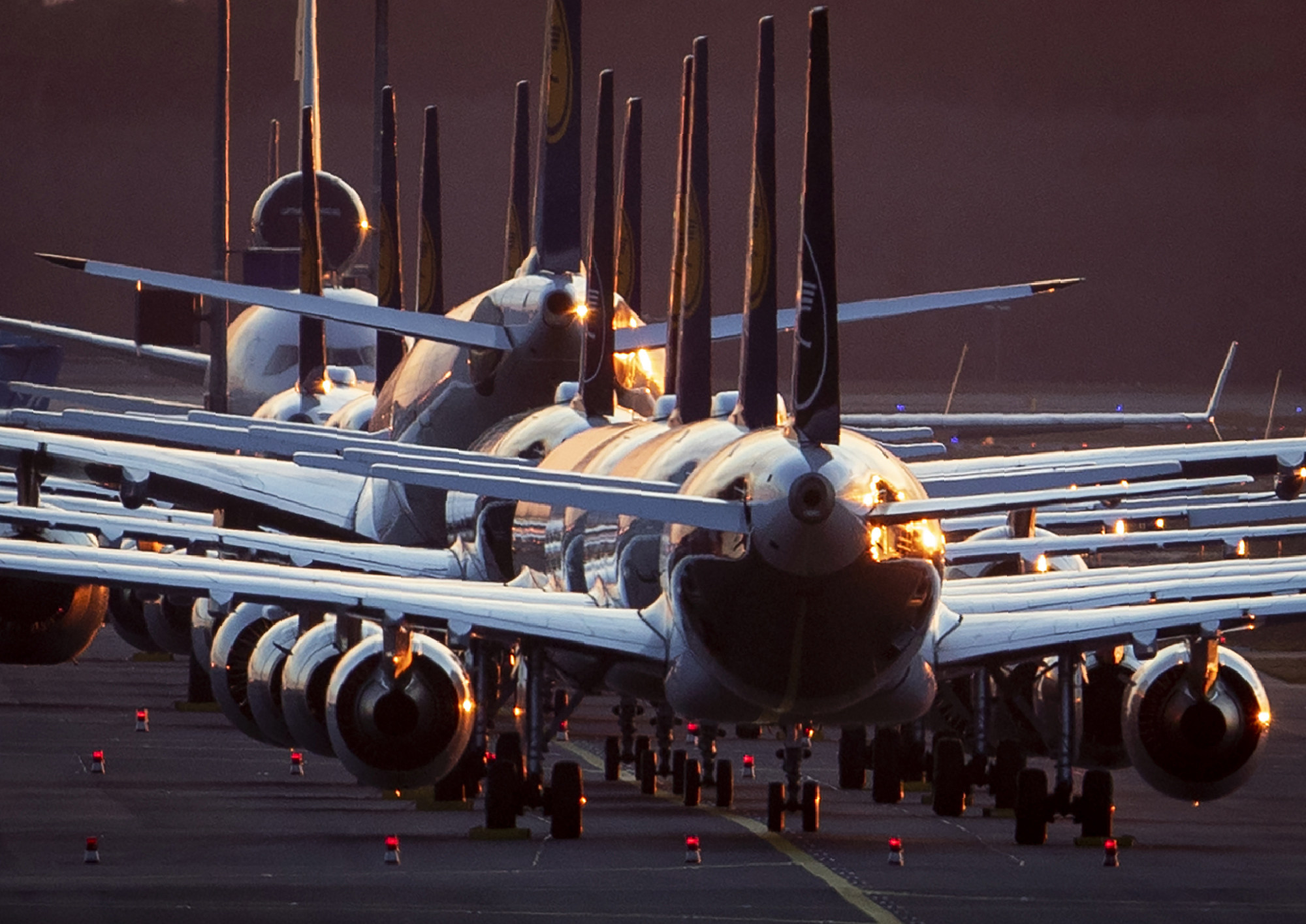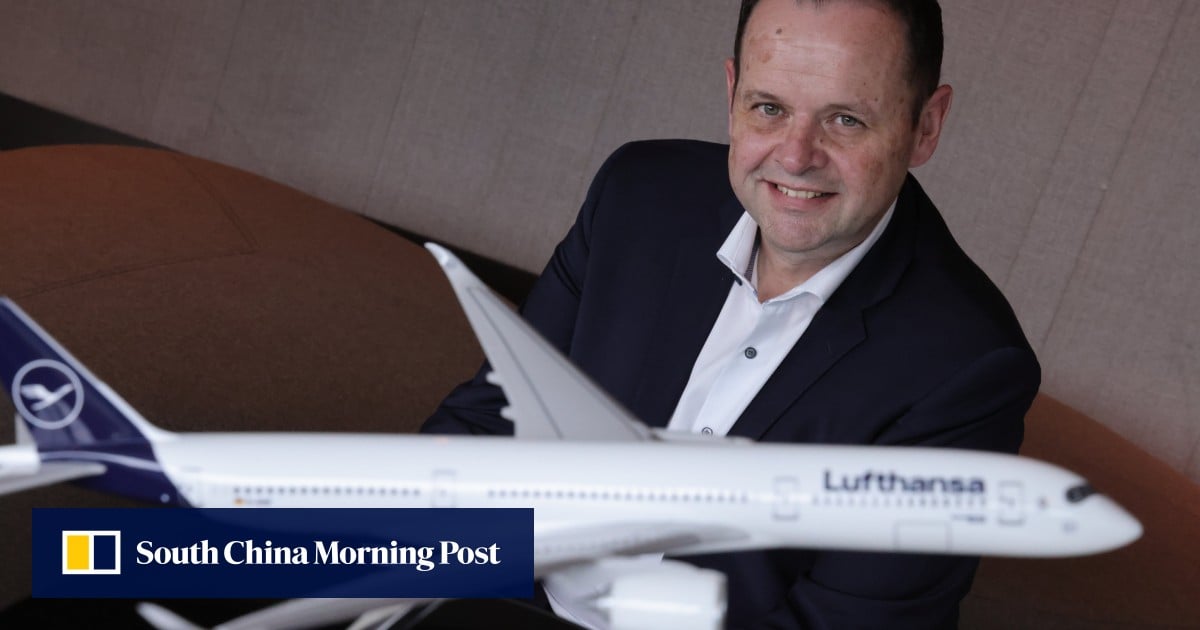Swiss International will add one more flight from Zurich to Hong Kong from October 29, making it a daily service.
Lufthansa currently flies once a day from Hong Kong to Frankfurt and Naeve said bookings were “strong” for the last three months of the year.
From March, the airline will resume its service to Munich for the first time in four years, with the current plan to start with three flights a week and then increasing to daily flights, which would bring the total number to Hong Kong back to pre-pandemic levels.
Naeve said it decided to resume the Munich service based on demand and the availability of crew, ground staff and aircraft.
“Sales are going well, the load factors are very high and that is why we have decided to add capacity,” Naeve said.
An airline’s passenger load factor is a measure of how well it is filling available seats.
Hong Kong faces ‘difficult’ task in rebuilding role as aviation hub, IATA says
Hong Kong faces ‘difficult’ task in rebuilding role as aviation hub, IATA says
As for the mainland, Swiss International Air Lines will double its services from Zurich to Shanghai Pudong to six times a week from October 28. Austrian Airlines also flies thrice a week from Shanghai Pudong to Vienna.
Lufthansa has a daily service from Frankfurt to Beijing and flies three times a week from Munich to Beijing. It also has daily services from Frankfurt and Munich to Shanghai Pudong.
Before the pandemic, the group had 76 flights a week to the mainland. By the end of this month, it will have 43 per cent, or 33 flights, of that level.
The German airline group was the latest to announce it was restoring services to Hong Kong to pre-pandemic levels next year.
Singapore Airlines said earlier that it would return to having six flights a day to Hong Kong from next August. From October 29, it will operate five daily flights to Hong Kong.
‘Hong Kong vying with Middle East for pilots, will only become air hub again in 2028’
‘Hong Kong vying with Middle East for pilots, will only become air hub again in 2028’
Hong Kong imposed some of the world’s harshest pandemic travel restrictions and cancelled restrictions on international arrivals in December and resumed quarantine-free travel with the mainland in February.
Many foreign airlines stopped flying to the city while restrictions were in place, and restoring services has taken time.
According to aviation analytics firm Cirium, at least seven airlines out of 110 carriers had restored flights to pre-pandemic levels in October, including Air France and Qatar Airways.
In August, the Board of Airline Representatives of Hong Kong said about a fifth of the airline group’s 72 members had yet to resume flights to the city.
China lifted its strict curbs on international arrivals at the beginning of the year, and Naeve said demand from Europe was driven mainly by corporate travel, as companies with investments in the mainland sent people there.
Leisure demand was coming back slowly in both directions, he added, with Chinese travellers facing difficulty getting travel documents.
Although China was dealing with a sluggish economy and weakening yuan, Naeve was optimistic that Chinese leisure travellers would start making their way to Europe again.
Hong Kong airport staff crunch: ‘delays for travellers, carriers can’t add flights’
Hong Kong airport staff crunch: ‘delays for travellers, carriers can’t add flights’
There have been other challenges for global airlines. After flight bans were imposed on Russia for its invasion of Ukraine in 2022, Moscow retaliated by closing its airspace to countries it considered hostile.
That forced Lufthansa and other European carriers to make costly detours on lucrative routes to Asia, including China and Japan.
Some European and United States carriers have warned of an uneven playing field, as Chinese, Gulf and Indian carriers were allowed to access Russian airspace.
Naeve said the ban had been a “strong operational burden” for airlines, with higher costs as aircraft had to fly further, and crew had to work longer too.
That had resulted in increased airfares, which he expected to remain high for the rest of the year.

The biggest challenges for the industry were ongoing labour shortages and supply chain issues that affected aircraft maintenance and deliveries.
Strong summer demand helped Lufthansa, which projected full-year earnings to surpass €2.6 billion (HK$21.4 billion) this year.
Some analysts have said that the surge could begin to taper as higher inflation and economic uncertainty weigh on demand in the autumn season and moving into next year.
Can Hong Kong regain its aviation crown with Singapore’s Changi expansion?
Can Hong Kong regain its aviation crown with Singapore’s Changi expansion?
Naeve brushed aside concerns that demand would wane over the rest of the year and into the new year, saying bookings remained “very resilient” through the first three months of 2024.
He added the post-pandemic trend of premium leisure travel, with passengers upgrading to either premium economy or business class was here to stay.
“I think that the next phase goes beyond ‘revenge travel’,” he said, referring to the post-pandemic boom in demand for travel.
Shukor Yusof, founder of aviation advisory firm Endau Analytics, said it made sense for Lufthansa to ramp up capacity to Hong Kong as Germany was more politically neutral towards China, compared to the US and UK.
However, he cautioned that geopolitics, China’s economic slowdown, higher inflation and the high price of jet fuel all had an impact on the airline business and travel sentiment.
“We are entering a year fraught with massive challenges,” he said.

